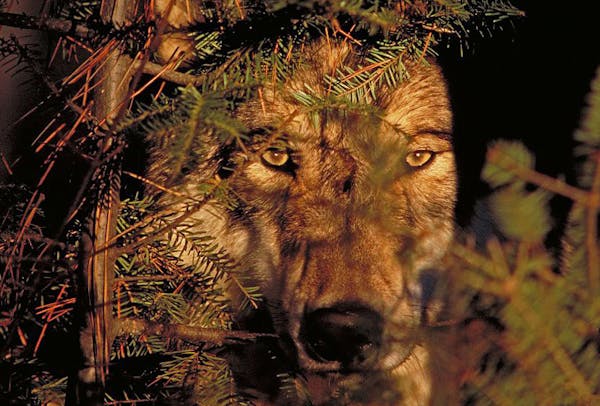NORTHWEST WISCONSIN -- Paul Hauge is an educated, thoughtful guy who was raised in northwest Wisconsin, loves the outdoors and is a bird hunter and dog man extraordinaire.
Also -- a good conversation starter here -- he put himself through dental school embalming bodies at night.
"I studied mortuary science first, and was licensed, and thought I would go into that business because my father owned funeral homes," he said. "Then I decided it wasn't what I wanted to do, and went back to dental school."
Raised in ruffed grouse country, Hauge has followed dogs in pursuit of these birds since he was a kid. He appreciates all pointing breeds, but has special affection for English setters. Also he hunts ducks over his Labradors, and feels never more at home than when they are alongside him in a blind overlooking a North Dakota marsh.
But there's more.
Hauge is also a houndsman, part of a small group of friends who call themselves the same, and well familiar with the age-old practice in Wisconsin of running dogs on coyotes, fox, bobcats and bears.
Hound running is a point of controversy for many people, including some hunters, who don't understand the appeal of putting a dog on the scent of another animal, perhaps particularly not bears, a practice that never has been legal in Minnesota.
But set side that discussion for another time, because Hauge has an experienced perspective on the matter of wolf hunting with dogs, an issue of considerable contention that will be in a Wisconsin courtroom again today.
A week ago, a judge issued a temporary injunction against the practice in Wisconsin's upcoming wolf hunt.
Hauge's first point:
There are more -- perhaps far more, he says -- wolves in northwest Wisconsin than the Department of Natural Resources knows, or will acknowledge.
Basis for this opinion are the increased wolf encounters his group has experienced. In the past seven years, he said, six of his group's hounds have been killed by wolves while hunting bears.
"Wolves are smart, and when they hear barking dogs in the woods, particularly coming from one location, it's like a dinner bell to them," Hauge said, referring to dogs' baying when they've treed a bear.
Like all trained sporting dogs, hounds represent considerable investments, emotionally and financially. No one in Hauge's group wants to lose a dog to a wolf. To minimize possible conflicts, they scour the countryside for wolf tracks before they set a hound loose from a truck.
"If it's a single wolf that dogs encounter in the woods, the wolf will run and get away," Hauge said. "But if it's a pack the hounds run into, the pack will kill the dog, or dogs."
At issue in the Wisconsin court is whether the use of dogs for wolf hunting inevitably sets the stage for similar conflicts, which in turn could violate the state's animal cruelty laws.
The issue could loom large for all hunters, and also anglers, and perhaps not just in Wisconsin, because "animal cruelty" can be in the eye of the beholder.
Certainly a wolf-dog fight wouldn't be a pretty sight, and perhaps could reasonably be judged as cruel to all parties involved.
But is hooking a walleye a similarly cruel exercise, viewed through the same lens? Shooting a deer? A pheasant? A duck?
Don't forget, in Minnesota at one time it was illegal to hunt ducks with a dog. Similarly, years ago, hunting ducks over decoys was illegal, presumably because they gave the hunter too much of an advantage.
Still, this question: Who among houndsmen would put their dogs in harm's way, particularly at the hands -- and teeth -- of a wolf?
The question would seem to be easily answered: no one.
But hunting with dogs is a large part of Wisconsin's sporting heritage, and groups such as the Wisconsin Bear Hunters' Association hold considerable political sway. Their voices likely carried the day when the state's wolf hunting bill was written.
"Anyone who was serious about using dogs on wolves would have to get a pack of running dogs, like coyote dogs, and develop them," Hauge said. "Houndsmen who hunt bears don't generally have dogs like that. They have 'treeing' dogs, or dogs that will tree a bear and stay with it, barking, until the hunter arrives.
"Usually, with those dogs, you don't want them breaking off on a coyote trail, and especially not on a wolf trail. That's the last thing you want. You want them to stay with a bear.
"Even then, nine times out of 10, the bear wins."
dennis anderson • danderson@startribune.com

Anderson: Celebrate Earth Day by rekindling real connection to nature
Anderson: Anglers protesting tough new Mille Lacs rules are wrong

Anderson: Courts, not politicians, should rule on Red Lake, White Earth lands

Anderson: Multimillion windfall gets invasive carp deterrent moving
![A young whitetail deer searches for food as another blanket of snow coats the arrowhead. ] Minnesota -State of Wonders, Arrowhead in Winter BRIAN PETE](https://arc.stimg.co/startribunemedia/WK32UWWY6FKNWJUIYCJ6ZPT4AU.jpg?h=91&w=145&fit=crop&bg=999&crop=faces)

